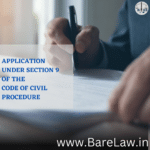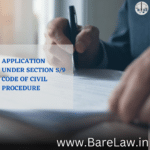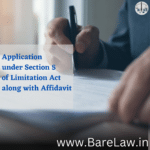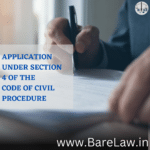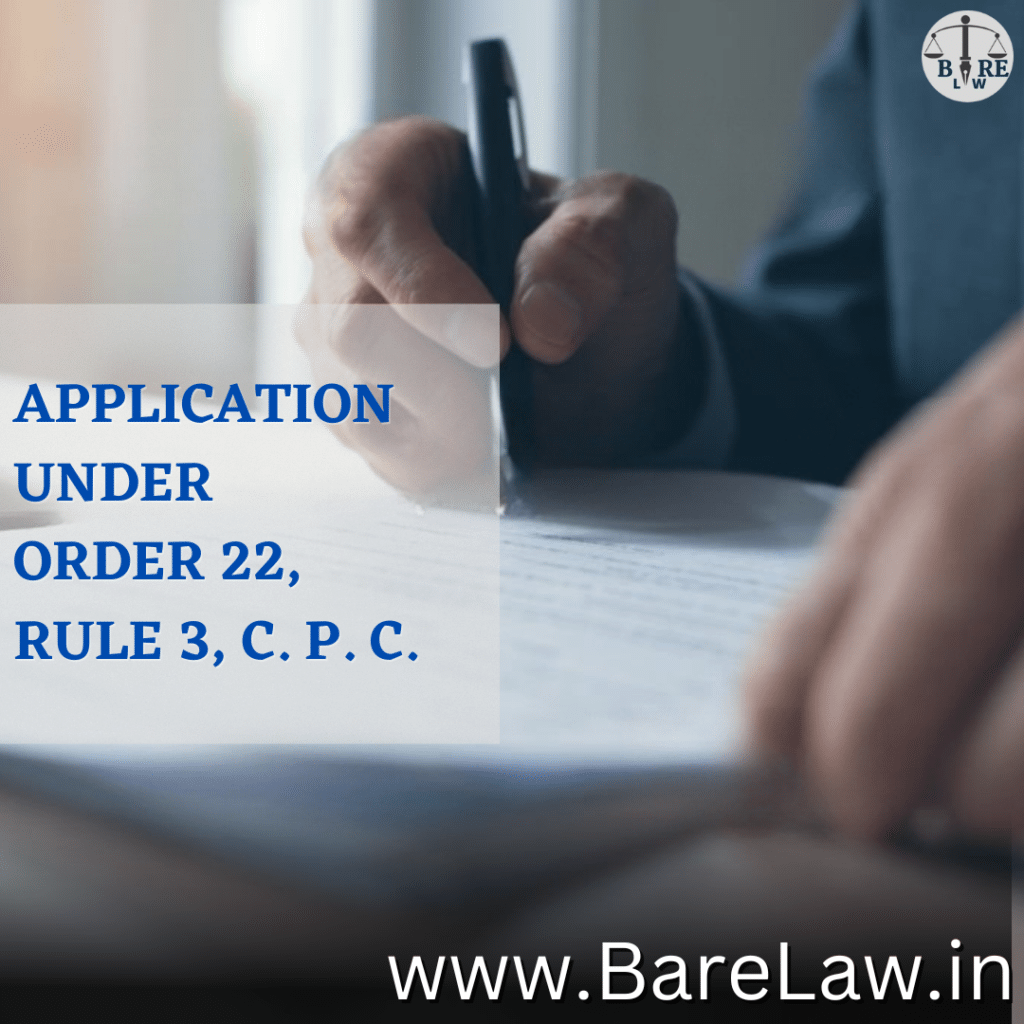
Table of Contents
APPLICATION UNDER ORDER 22, RULE 3, C. P. C.
APPLICATION UNDER ORDER 22, RULE 3, C. P. C.
Draft
APPLICATION UNDER ORDER 22, RULE 3, C. P. C.
APPLICATION FOR SUBSTITUTION OF THE NAMES OF LEGATEES
IN THE COURT OF THE………………..
Misc. Application No………………… of 19………………..
in
C. D………………………………………………………. Applicant
in
case C. D…………………………………………………………. Plaintiff
versus
F. F………………………………………………………. Defendant
In the matter of application for substitution of names of legatees.
Sir,
In the abovenoted case it is respectfully submitted as under:
1. That the plaintiff……………….. died on………………..
2. That the plaintiff made a will in which she has nominated the applicant and……………….. as the executors.
3. That in the interest of justice it is essential that this Honourable Court be pleased to deletion of the name of……………….. permitting substitution of the names of the legatees under the will in her place and making of the necessary consequential amendments in the plaint as detailed below:
PRAYER
It is, therefore, respectfully prayed that this Hon’ble Court may be pleased to permit the applicant and……………….. to be substituted in place of……………….. after deleting her name and the applicant be permitted to make the amendment in the plaint:
(a) That in the title of the plaint the name of the deceased plaintiff ……………….. be ordered to be deleted and in her place the names of the following be permitted to be substituted:
1/1……………….. son of……………….. resident of………………..
1/2……………….. son of……………….. resident of
(b) That in line 1 of para No. 1 of the plaint the words deceased plaintiff was ” be permitted to be substituted in place of the words “plaintiff is” and in line 4 the word “deceased” be permitted to be added before the word “plaintiff.
(c) That in para 2 in lines 2, 3 and 4 the word “deceased” be permitted to be added wherever the word “plaintiff occurs and in line 2 the “abuses” be allowed to be substituted by the word “abused” and in line 5 the word “is” be permitted to be substituted by the word “was”.
(d) That in line 2 of para 4, in the lines 2 and 4 of para 5, in line 1 of para 6 the word “deceased” be permitted to be added before the word “plaintiff, and in line 1 of para 6 the word “is”, be permitted to be substituted by the word “was”.
(e) That after para 6 of the plaint a new para marked as “6A” be permitted to be added as follows:
“6A. That the substituted persons viz., Shri………………… and ………… are the legatees of the property of the deceased plaintiff under the will dated………… made by the deceased plaintiff and they are entitled to continue this suit for ejectment of the defendant from the property in suit and recovery of arrears of rent and mesne profits because the right of the deceased plaintiff survives.’’
(f) That in the verification clause in second line the words “part of be permitted to be added after figure “6” and before the word “are” and in line 4 the words “part of 6A” be permitted to be added in between figures “6” and “7”.
It is accordingly prayed.
Applicant
VERIFICATION
Verified that the contents of this application are true to my personal knowledge.
Verified and signed on this……………….. day of……………….. 19……………….. at…………………
Applicant
Through Advocate
Dated:………………..
case law
Order 22 Rule 3
WHEN REFUSING SUBSTITUTION NOT PROPER
Where the delay in making substitution application was of few days only and there was satisfactory explanation for delay in seeking substitution, the High
Court was held to be in error in refusing substitution in the second appeal
before it’.
WHO MAY FILE APPLICATION UNDER THIS RULE.
The words employed in this Rule, namely “on an application made in this behalf ” clearly point out that any person may file such an application. Thus a person who purports to be a legal representative of the deceased plaintiff or appellant may file an application for bringing on record the legal representatives of the deceased plaintiff or appellant, although he may be found not to be real legal representatives of the deceased plaintiff, and even then the names of the real representatives of deceased plaintiff may be brought on record if their names have been brought to the notice of the court2.
CONSENT DECREE BASED ON ONE VIEW OUT OF TWO POSSIBLE VIEWS NOT LIABLE TO CHALLENGE.
Where a compromise decree was passed in appeal, the deed creating religious trust could be constructed to have two views but the compromise was based on one view, it could not be challenged in the subsequent suit on the ground of collusion and fraud3.
CONTINUITY OF SUIT ON BASIS OF ORIGINAL SUIT.
When during the pendency of a suit the plaintiff dies, and his legal heirs are substituted, they are entitled to continue the suit on the basis of the claim laid by the original plaintiff. They are not entitled to claim independent title of theirs contrary to what has been claimed in the suit4.
DISMISSAL OF APPLICATION UNDER THIS RULE ON GROUND OF INSUFFICIENT STAMP ON GENERAL POWER OF ATTORNEY — WHETHER JUSTIFIED? — (NO)
Wherein an arbitration proceeding, an application of legal representatives of a deceased party was dismissed on the ground of insufficient stamps on the deed. Held that the document ought to have been admitted in evidence on payment of stamp duty and penalty. The dismissal of the application was unjustified5.
APPLICABILITY OF THE RULE TO WRIT PETITIONS.
Though the elaborate and technical rules of the Code may not apply to applications under Article 226 of the Constitution of India, on the strength of section 141 of the Code yet the principles in general as laid down in the Code would be applicable on the grounds of justice, equity and good conscience in the matter of impleading the legal representatives6.
EFFECT OF BONA FIDE MISTAKE IN NOT SUBSTITUTING ALL HEIRS.
In a case of death of a party to a suit or appeal, even if any heir of the deceased is left out of the record and the plaintiff or appellant does not bring him on record in the bona fide belief that others being on record the only heirs, the competence of the suit or appeal will not be effected. It is immaterial whether no steps have been taken within the time allowed7.
WHEN APPEAL ABATES AS A WHOLE
When two of the plaintiff appellants died, the decree of the District Judge became final qua them. If thereafter the High Court granted a decree to the other plaintiffs appellants there would be two contradictory decisions with regard to the right which had been jointly claimed by the plaintiffs. In such a case the second appeal before a single Judge had abated as a whole and the order made by the Judge must be set aside because he could not have heard the appeal and allowed after it had abated8.
1. Harjit Singh v. Raj Kishore, A. I. R. 1984 S. C. 1238.
2. Ram Charan Lal v. State, A. I. R. 1980 Raj. 96: 1979 Raj. L. W. 439.
3. Jadu Gopal Chakravarty v. Pannalal Bhomic, A. I. R. 1978 S. C. 1329: (1978) 3 S. C. C. 215: (1978) 3 S. C. R. 855.
4. Radhakrishna Padhi v. Bholakrishna Panda, A. I. R. 1981 Orissa 63.
5. Ishwar Dayal Jain v. Union of India, A. I. R. 1983 Delhi 330.
6. Anant Ram v. Deputy Commissioner, Kulu, A. I. R. 1972 H. P. 15: Also see A. I. R. 1968 P&H 360: A. I. R. 1967 All. 334.
7. Central Bank of India Ltd. v. Kala Prasad, 1968 B. L. I. R 494.
8. Puran Singh v. Hazara Singh, A. I. R. 1966 Punj. 312: 1966 Cur L. J. 216.
